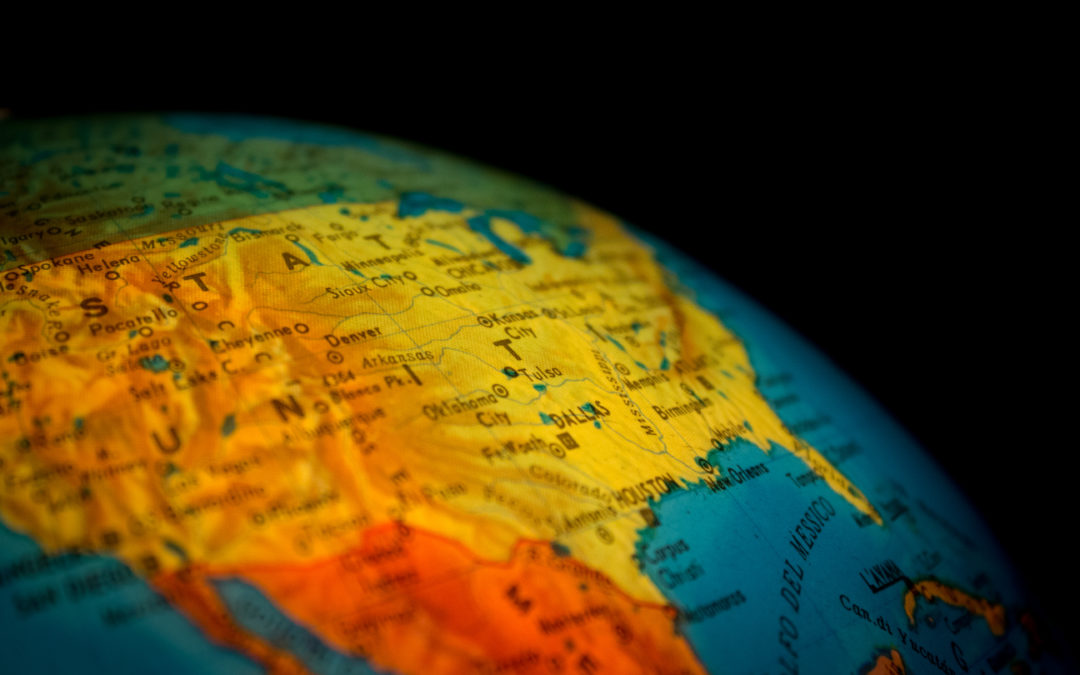No matter what your political leanings, everyone can agree that the presidential election 2016 was (and, in many way, continues to be) brutal. The tone of the campaign was something we had never seen before. The rhetoric brought up feelings of suspicion, anxiousness, outrage, and anger. Whether your candidate won or lost, there is general agreement that Americans must take a hard look in our collective mirror. In our every day lives, we might be surrounded by people who look like us, think like us, and live like us, but as a country, we clearly are divided.
So what now?
Many people are in the process of taking action, either by contacting their legislators or donating to causes that are dear to them. The American Civil Liberties Union, for example, has received an unprecedented outpouring of donations in the weeks after the election.
Others feel they should do something, but they don’t know what. Too overwhelmed to research causes to which they might donate, to busy to volunteer, and too stressed out to talk about the election with their friends, colleagues, and neighbors, they may simply move forward and move on. And yet, an undercurrent of anxiousness remains.
I offer the following suggestions for SIMPLE ways to give back, look within, and, to coin a too-often-quoted phrase, “be the change”:
Talk to someone who is different than you: Saturday Night Live created a hilarious, and hauntingly familiar, fake commercial called “The Bubble.” Sadly, it reminded me quite a bit of my own life. So many of us live in our bubbles, surrounded by others who look like us, talk like us, and share our views on politics, religion, civil rights, and more. Challenge yourself to have a conversation with someone who is not like you. If you don’t know anyone nearby who is like you, you can connect with an old high school friend on Facebook, or you can even write to an author whom you find online. I suggest that you not kick off the conversation with “How could you possibly vote for that jerk!?” Maybe your opening line is something as simple as “What are your plans for the holidays?” or “I like what you said/wrote/showed about XYZ.” Expanding your bubble just a little bit, even with an innocuous conversation that has nothing to do with the news of the day, is a first, tiny step in creating a more interwoven life, something that I think our country desperately needs. If nothing else, you prove to yourself that you can do it; that seed of recognition will remain within you, ready to grow when it is needed.
Simply volunteer: When I say “simply,” I am encouraging you to transcend the intimidation that may come with the idea of committing to a volunteer project. I don’t have the time, I don’t know where to volunteer, I don’t want to go through the organization’s volunteer training program, I can’t commit to doing something every week, my limited time won’t make a difference anyway… There are plenty of barriers. If you don’t feel ready to take on a sustained commitment, start small. Can you help a neighbor who is sick? Can you prepare one bagged lunch, one sandwich, for someone who needs it? Can you take a trash bag to a local park, or even somewhere in your neighborhood, and pick up trash for 15 minutes? True, none of these single efforts will transform our country’s homelessness problem or reverse the trend of global warming. But they might help one person – and that one person might be you. By showing yourself that you can, indeed, do something for the greater good, you create your own sense of empowerment. That sense of empowerment can fuel more action.
Donate: While some might disagree with me, I’m putting my radical notion out there: Everyone should volunteer and donate money. I’m not saying that everyone should volunteer 10 hours per week and give away 10% (or more) of their annual income. I’m saying that at some point in a given year, everyone should give some amount of time and some amount of money to a person or cause in need. When I’ve shared this idea, I’ve gotten pushback. People say “But I give a lot of time, and that is so valuable.” Yes, I couldn’t agree more! If you give your time, that is incredibly valuable. Lots of nonprofit organizations literally could not do the good work that they do without volunteers. But, I can tell you based on my 25+ years working in the nonprofit world: Those nonprofits need money, too. Unless they are supported by a single benefactor or a series of government grants, most nonprofits cannot survive without donations.
- Think your $4 donation (the costs of a Starbucks iced mocha, not that I’m speaking from personal experience or anything) won’t make a difference? Think again. When nonprofits apply for larger grants, maybe even multi-million dollar grants, they cite not only how much money they get from individual donations, but how many individuals support their work, and how the number of donors grows from year to year. So, even if your $4 only buys the nonprofit one bag of potatoes to cook and feed to the homeless, your donation is helping them bring in bigger bucks from bigger donors.
- Don’t know where to donate? There are lots of resources online to help you choose a reputable organization, one that spends money wisely and not wastefully, but here’s another radical idea: Just Give Somewhere. Seriously. I think there’s too much paralysis by analysis out there. People are so worried about giving to an organization with low overhead that they end up not giving anywhere, in part because they don’t want to do the research that they believe is necessary. Just give somewhere. Even if you start with a very small donation, a good nonprofit will stay in touch with you (letters, emails, social media, etc.), and that is your opportunity to learn more about them. Just give a small amount somewhere, and take it from there.
Talk. Volunteer. Give. It won’t heal the world overnight, but it will help heal you. It’s a first step in working towards an election cycle (and a community, and a country) that is more willing to listen, more willing to be civil, and more interconnected than it was in 2016.

